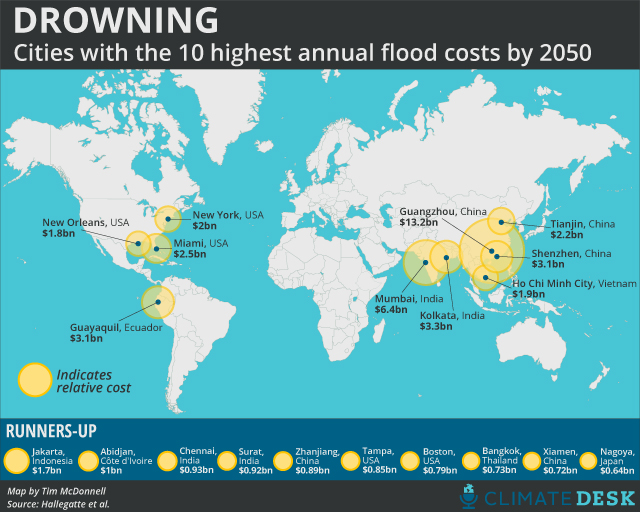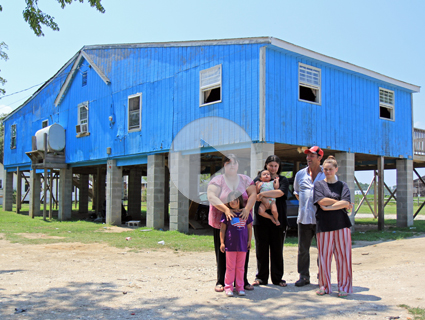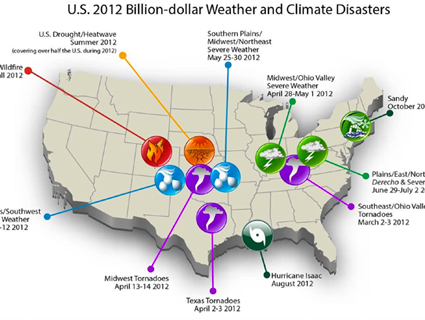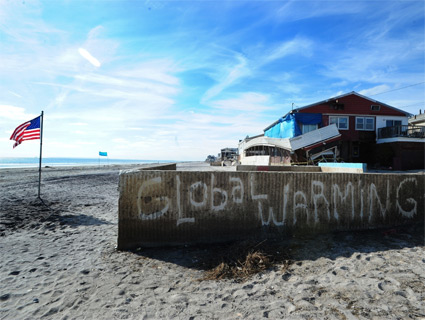
As climate change intensifies, one of the most surefire threats we’re bound to face is increased flooding of coastal cities brought on by sea level rise. Taxpayers worldwide will be faced with more whopping bills—like the estimated $60 billion cost of Superstorm Sandy—to clean up damage in the wake of these events. But just how much money are we talking about here? According to a study out today in Nature, it’s a freakishly large number: A dangerous combination of rising seas, sinking land, and growing coastal development could push global flood damages to well over $1 trillion every year by 2050.
Stephane Hallegatte, an economist at the World Bank, and his coauthors tallied up estimated flood damage losses for the world’s 136 largest coastal cities, on the basis of local population and real estate and infrastructure values crunched with data on each location’s elevation, exposure to extreme weather like hurricanes, and existing coastal protection infrastructure. Then he extrapolated these costs into the future using UN population and urbanization models, economic models from the Organization for Economic Cooperation and Development, and climate models of future sea level rise. The results were staggering: The $1 trillion figure, Hallegatte says, is just the bare minimum.
Without action to better protect these vulnerable metropolises, he says, “even in cities that are very well-protected today, losses will reach levels that are completely impossible to imagine.” The map above shows the 20 cities with the highest estimated losses in the absence of any proactive measures.
Sounds grim, but there’s a silver lining: Installing robust protective infrastructure that accounts not just for sea level rise but also population growth and future shoreline development could reduce annual losses to $52 billion. As is so often the case with climate change preparation, investment up front can save big bucks down the road. After all, Hallegatte says, even the cost of massive sea walls, natural barriers, and other coastal protection will seem like chump change compared to a scenario where “we have cities destroyed and we have to rebuild them again and again.”















